Cultural Program NSU Summer Session 2015
During your stay in Lithuania you will have possibility to experience the spirit of the country, to get to know its historical past, to have a closer look to its heritage and traditions, to visit parks and cultural spaces. Welcome to NSU 2015 in Druskininkai!
07.18 20:00 Violin, Viola & Video Virtuosity
Karen Bentley Pollick, Violin & Viola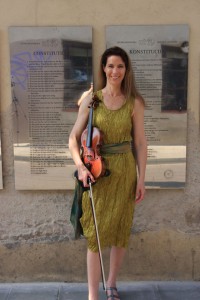
Music by Anatolijus Šenderovas, Žibuoklė Martinaitytė, Gediminas Gelgotas, Ole Saxe, Henning Kraggerud, Unto Mononen, Tõnu Kõrvits & Dominique de Williencourt
Videos by Philip Van Keuren and Evaldas Arlauskas
The Programme
Cantus in Memoriam Jascha Heifetz for solo violin (2001) Anatolijus Šenderovas (b. 1945)
Serenity Diptychs for violin, tape and still images (2015) Žibuoklė Martinaitytė (b. 1973)
Photographic Imagery & Video by Philip Van Keuren, Visual & Digital Production by Melissa Tran
To The Skies for solo violin (2011) Gediminas Gelgotas, Video by Evaldas Arlauskas (b. 1986)
Uzupis Constitution Song for solo violin (2015), World Premiere, Ole Saxe (b. 1952)
No Slavery: Article 4 from Human Rights Suite for solo violin (2008)
B flat minor Postludium #10 (2014),Henning Kraggerud (b. 1973)
Satumaa/Fairtyale Land (1955), Unto Mononen (1930 – 1968)
Randaja laul/Wanderer’s Song for viola solo (2003), Tõnu Kõrvits (b. 1969)
Mont Ararat for viola solo (2011), Dominique de Williencourt (b. 1959)
07.19 19:00 Park Grūtas
Topping the list of unlikely attractions is Grūto Parkas, popularly known as Stalin World, with its statues of ‘heroic workers’ and rescued busts of Lenin and Uncle Joe, spread around a forest park guarded by gulag-style watchtowers. The theme park’s founder, mushroom-mogul Viliumas Malinauskas, insists that the park exists to make fun of Communism, but plans for Siberian-style ‘deportation’ trains to ferry tourists from Vilnius were flatly rejected by local officials!
07.20 19:00 Film retrospective of Audrius Stonys
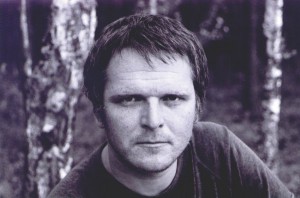 Audrius Stonys can be called one of the most established Lithuanian film directors. A. Stonys is a director, producer, member of European Film Academy and European Documentary Network, laureate of Lithuanian National Prize. His films received many international film awards. In 1992 his film Earth of the Blind received the European Film Academy’s Felix Award for the Best European Documentary Film of the Year. In 2004-2005 A. Stonys was a lecturer in European Cinema College in Denmark, had master-classes in the following universities: Waseda (Japan), Berkeley and Stanford (USA). A. Stonys was teaching documentary cinema at Pompeu Fabra University in Barcelona. Currently he is directing his new film in Kazakhstan, Tian Shan, Tuiksu glacier.
Audrius Stonys can be called one of the most established Lithuanian film directors. A. Stonys is a director, producer, member of European Film Academy and European Documentary Network, laureate of Lithuanian National Prize. His films received many international film awards. In 1992 his film Earth of the Blind received the European Film Academy’s Felix Award for the Best European Documentary Film of the Year. In 2004-2005 A. Stonys was a lecturer in European Cinema College in Denmark, had master-classes in the following universities: Waseda (Japan), Berkeley and Stanford (USA). A. Stonys was teaching documentary cinema at Pompeu Fabra University in Barcelona. Currently he is directing his new film in Kazakhstan, Tian Shan, Tuiksu glacier.
Sometimes it seems that he is more famous abroad than in Lithuania, but it also seems that quietude makes his movies even more gripping. During more than twenty years of creative work Audrius Stonys has remained faithful to himself, his unique conception of cinema and poetical interpretation of the world.
The film retrospective will bring you to the three different experiences:
“Flight Over Lithuania or 510 Seconds of Silence”
(with participation of Arunas Matelis)
 8min/ 2000
8min/ 2000
director of photography Vytautas Survila
4th position in TOP 10 in world exhibition “Expo 2000”
The film features an incredibly low angel’s flight over the dunes of Nida, Trakai castle, the lakes of Aukštaitija (Highlands), the roofs of the Old Town of Vilnius and the fantastically beautiful church steeples. It’s like a mystical gliding just above the treetops, meadows covered by early morning mist, as well as the narrow streets of Vilnius.
“Flight over Lithuania” was made for the international exhibition EXPO 2000 in Hanover, Germany.
“Ramin”
58min/ 2011
Script A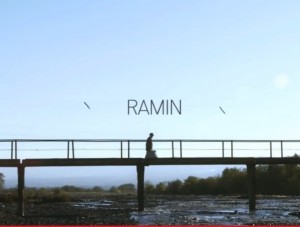 udrius Stonys, Givi Odisharia
udrius Stonys, Givi Odisharia
Cinematographer Audrius Kemezys
Editor Ugis Olte
Producer Uldis Cekulis, Vides Film Study (Latvia)
Main prize in Pärnu International Documentary and Anthropology Film Festival (Estonia)
The film is a joint Lithuanian, Latvian and Georgian cinematographers’ work. Its hero – Ramin Lomsadze, a 75-years old Georgian wrestler who once won seven matches in 55 seconds, is getting ready for the fight with his last and most formidable opponent – Loneliness. Perhaps Ramin, the man with an unbeatable heart, was too much of a winner to let himself be won by anyone, not even by a woman’s love. Today he is beginning to feel otherwise. Ramin gets on the train and goes to the remote Kvenatkotsa to seek out his long lost love. The film presents Ramin’s journey through the Georgian landscape and through the landscape of his memories.
“Gates of the Lamb”
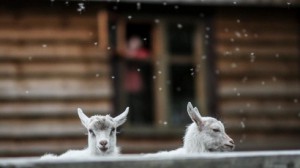 40min/ 2014
40min/ 2014
Script Audrius Stonys
Camera Laisvūnas Karvelis
Producers Br. Gediminas Numgaudis, Radvilė Šumilė
Music Giedrius Puskunigis
Man at the gates of eternity. Water flows form a small pitcher. The Jordan River immerses death and it immerses life. A small oil-cross on the forehead of a new-born, the scent of God, a candle lit to show the road even when the night is at its darkest. A film about the unseen miracle of Baptism and the inexplicable touch of God.
07.21 19:00 Concert The Soundscapes of Čiurlionis
Performers Duo Zubovas (piano four hands) – Sonata Deveikytė-Zubovienė, piano and Rokas Zubovas, piano.
The Programme M. K. Čiurlionis piano works and video demonstration of paintings. Conversations about M.K. Čiurlionis and his era.
20 15 marks the 140th birth anniversary of M.K. Čiurlionis. At the concert dedicated to the genius Lithuanian composer and painter, pianist Rokas Zubovas, the grandson of Čiurlionis, will play and share thoughts about him.
15 marks the 140th birth anniversary of M.K. Čiurlionis. At the concert dedicated to the genius Lithuanian composer and painter, pianist Rokas Zubovas, the grandson of Čiurlionis, will play and share thoughts about him.
The Lithuanian pianists Sonata Deveikytė-Zubovienė and Rokas Zubovas started performing together in 1997. Both pianists, winners of international competitions, received music education in Lithuania (Lithuanian Academy of Music), Switzerland (Heinrich Neuhaus Institute, Zürich) and the USA (De Paul University, Chicago), where they studied under guidance of pianists Povilas Stravinskas, Jurgis Karnavičius, Esther Yellin, Andrius Kuprevičius, Edvard Auer and Dmitry Paperno.
Duo Zubovas has appeared in international festivals in Lithuania, Norway, France, Italy, performed in South America (Argentine and Uruguay), North America (the USA and Canada), and throughout Europe. Besides performing the canon of repertoire for two pianos, Duo Zubovas’ special interest are works originally written for piano four hands by Mozart, Beethoven, Schubert, Schumann, Brahms, Reger, Debussy, Ravel, Faure, Rachmaninov, Corigliano, and other composers, as well as transcriptions for piano four hands including Stravinsky’s “The Rite of Spring”, Bach’s “Brandenburg Concertos”, Haydn’s “Die sieben letzten Worte unseres Erlösers am Kreuz”, Ravel’s “Spanish Rhapsody”, Debussy’s “Spring”, “The Sea”, Čiurlionis’ String quartet and Symphonic Poem “In the Forest”, Gershwin’s “Cuban Overture” and “Rhapsody in Blue” and others. The Duo performs with various symphony and chamber orchestras in Lithuania and abroad and has a number of works by Lithuanian composers dedicated to them.
07.22 19:00 For 25 years in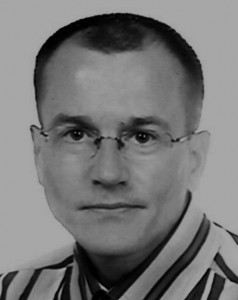 Lithuania with a Soviet Visa
Lithuania with a Soviet Visa
In 1990-91 a group of Norwegians wishing to help the independence of Lithuania got the idea to offer assistance to introduce the Internet at the academic institutions in 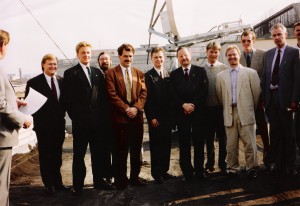 Vilnius, Kaunas and Klaipeda. It was not easy in a time with Soviet embargo and the KGB controlling the borders. Later a lot of other projects were inititated and implemented. Several members of the original group are still living in Lithuania.
Vilnius, Kaunas and Klaipeda. It was not easy in a time with Soviet embargo and the KGB controlling the borders. Later a lot of other projects were inititated and implemented. Several members of the original group are still living in Lithuania.
Mr Jan S. Krogh is one of them. This year it is 25 years since he visited Lithuania first time. He will tell about the challenges of being a Scandinavian first in the middle of a struggle for independence, and thereafter building up a democracy from scratch.
21:00 Installation The National Hymn

Actualization of national values is the main wire of our identity, and the language of synthesis is the voice of today. By the expression of interdisciplinary synthesis of science (physics, acoustics, phonology…), art (textile, music, poetry…) and technologies (spectrographic analysis, jacquard weaving, optics technologies, illuminations, installations…), one of the fundamental national symbols is presented – the anthem.
The installation The National Hymn consists of the strip of the spectrogram analysis of the sound expressed by jacquard weaving of the anthem published by Vincas Kudirka more than 100 years ago; the strip, with the help of laser illumination and dynamic installation, “cuts” the view at the present moment, i.e. the spectator has the possibility to hear and see qualitative changes of the sound here and now.
/ ANTHEM “The National Hymn” by Vincas Kudirka. Performed by Kaunas State Choir and Lithuanian National Symphony Orchestra.
/ DURATION 96 seconds of the anthem and 2 seconds of silence.
/ FABRIC 70 x 314 cm. Computerized Jacquard weaving. Threads – pitch of a tone, strands – moments of time. Red colour – tones of the lowest intensity, blue colour – tones of the highest intensity.
/ LASER BEAM Active element – GaAs laser diode, continuous wave (CW), Colour – red (630 nm), power – 1mW.
/ PRINCIPLE OF OPERATION A laser beam is seen as a 70 cm line which moves by the outer surface of the installation marking fragment played at that moment in the spectral diagram of the anthem.
07.23 19:00 Baltic refrain
The Programme
“Only the wind in the beginning of the world…“ Composition P. Vyšniauskas, words V. Braziūnas.
“Oration” Musical background P. Vyšniauskas.
“… and stones bloom, and the trees“ Composition P. Vyšniauskas, words V. Braziūnas.

Vladas Braziūnas is a distinctive Lithuanian poet, essayist, Bonnie’s Flowers, Jotvingių, Antanas Miškinis, Dionizo Poškos prize winner, author of fifteen books of poetry. His poems, which can be found in the collections Home-Spun Songs (Iš naminio audimo dainos, 2005) and Yesterday is Tomorrow (Vakar yra rytoj, 2007), demonstrate that the heritage of agrarian culture in poetry is more vibrant than critics had given it credit. Its imprint is not lost in Braziūnas’ poetry; rather, it is modified, giving his work a regional colour that reflects the language and mentality of northern Lithuania. Poetic meanings are actively created by the sound of words, giving them historical distance – and sometimes proximity. The poet considers himself a product of the poetry both of his region in Lithuania and of central and eastern Europe. He has already presented to his publisher a collection of poetry written in his native dialect, and phrases in his native dialect appear in poetry he has already published. From this perspective, Braziūnas’ poetry continues an honoured tradition. Recently in Lithuania, books have been published or poetry written in native dialect by Vytautas Rudokas (1928-2006) and Justinas Kubilius (b. 1954); Anna Rancāne (b. 1959) writes in Latvia in her native dialect; in Estonia there are Nikolaj Baturin (b. 1936), Mats Traat (b. 1936), and many others, especially those writing in the Võru dialect as they seek to make it an independent language. Together with the Swiss translator Markus Roduner, Braziūnas himself has translated the book There Goes a Person (Da geht ein Mensch, 2004) by the Swiss poet Kurti Marti, a proponent of dialect poetry in contemporary Europe.
Braziūnas has published translations of Byelorussian, Croatian, French, Latgalian, Latvian, Polish, Russian, Serbian, and Ukrainian poetry, and Latvian, Russian, Ukrainian and Byelorussian proze. For his achievements in translating Ukrainian poetry, Braziūnas received the Taras Sevchenko fund award in 2002.




